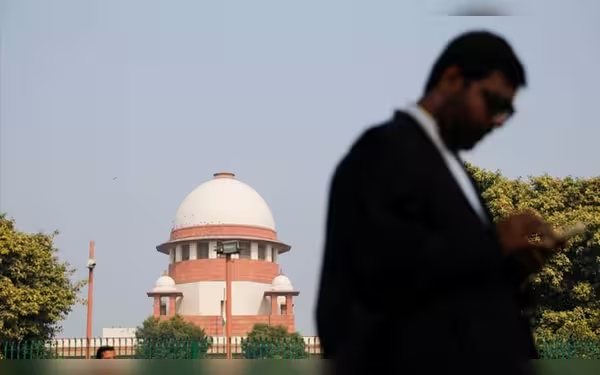Saturday, November 16, 2024 05:28 PM
Supreme Court Overturns Ban on Madrasas in Uttar Pradesh
- Supreme Court allows 25,000 madrasas to operate in Uttar Pradesh.
- Decision protects rights of 2.7 million students and 10,000 teachers.
- Chief Justice emphasizes state's obligation for adequate education.
 Image Credits: thenews
Image Credits: thenewsIndia's Supreme Court overturns ban on madrasas in Uttar Pradesh, ensuring educational rights for millions.
In a significant ruling, India’s Supreme Court has overturned a ban on Islamic schools, known as madrasas, in Uttar Pradesh, the country’s most populous state. This decision comes as a relief to thousands of students and teachers who were affected by a previous order from the Allahabad High Court. In March, the High Court had declared a 2004 law governing these schools unconstitutional, arguing that it violated the principle of secularism enshrined in the Indian Constitution. The court had directed that all students from madrasas be transferred to conventional schools, which raised concerns about the future of Islamic education in the region.
By setting aside the March ruling, the Supreme Court has allowed approximately 25,000 madrasas to continue operating in Uttar Pradesh. This decision is crucial for the 2.7 million students and 10,000 teachers associated with these institutions. Chief Justice D.Y. Chandrachud emphasized in court that “the act is consistent with the positive obligation of the state to ensure that the children get adequate education.” This statement underscores the importance of providing diverse educational opportunities for all children, regardless of their religious background.
Despite this positive development, the state government has not yet commented on the Supreme Court's decision. The ruling comes at a time when Prime Minister Narendra Modi’s Bharatiya Janata Party (BJP) is actively converting madrasas into conventional schools in other regions, such as Assam. This has raised concerns among Muslims and various rights groups, who accuse some BJP members of promoting anti-Islamic sentiments and engaging in actions that undermine the rights of Muslim communities.
It is essential to recognize the broader implications of this ruling. Education is a fundamental right, and the ability to learn in a culturally relevant environment is vital for the development of any community. The Supreme Court's decision not only protects the rights of students and teachers in madrasas but also reinforces the idea that India is a nation that values diversity and inclusivity. As the country continues to navigate complex social and political landscapes, it is crucial for all stakeholders to engage in constructive dialogue that promotes understanding and respect among different communities.













